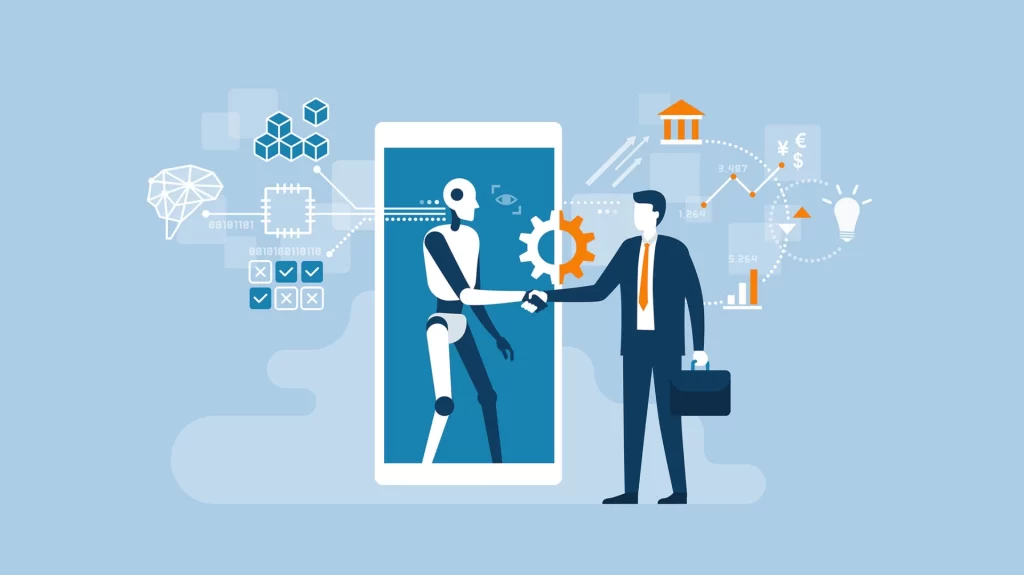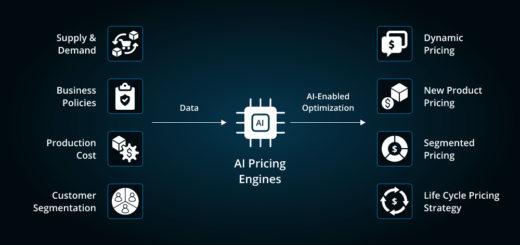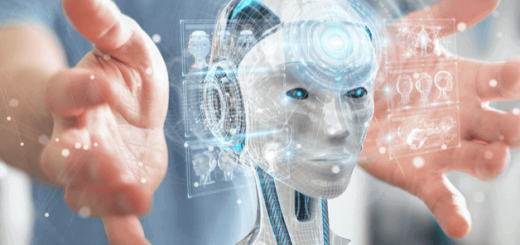The AI-Powered Enterprise: How Intelligent Systems Are Reshaping Business Operations

The role of Artificial Intelligence (AI) in business has shifted from being a competitive advantage to a necessity for operational efficiency, decision-making, and customer engagement. Organizations are no longer just experimenting with AI—they are integrating it at the core of their operations to drive automation, optimize resource allocation, and generate predictive insights.
The increasing reliance on AI-powered business intelligence, automation tools, and customer experience platforms is transforming how businesses operate in a rapidly evolving market. With machine learning models becoming more adaptive and scalable, AI is enabling companies to make real-time data-driven decisions, enhance productivity, and create personalized customer experiences.
In this article, we explore how AI is reshaping business functions, its impact on industry leaders, and the challenges that come with adopting AI-driven solutions.
1. AI in Business Intelligence: From Data to Actionable Insights
Companies generate massive amounts of data, but extracting meaningful insights in real-time remains a challenge. AI-powered business intelligence (BI) tools are bridging this gap by transforming raw data into predictive models and actionable insights, helping executives make more informed, data-driven decisions.
A. AI-Powered Predictive Analytics
- AI models analyze historical data to predict market trends, customer behavior, and business risks with high accuracy.
- Retailers use AI-powered analytics to forecast inventory needs, ensuring they remain resilient to demand fluctuations.
- AI-driven risk management tools help financial institutions assess creditworthiness, reducing loan defaults and fraudulent transactions.
B. AI in Financial Forecasting and Automation
- AI-driven financial planning tools analyze cash flow, revenue trends, and operational expenses to help businesses make more accurate budgetary decisions.
- Automated accounting software powered by AI-driven anomaly detection flags financial inconsistencies and fraud risks in real time.
- AI-driven supply chain finance tools help businesses optimize procurement, supplier payments, and logistics based on market fluctuations.
These AI-powered intelligence solutions remove guesswork from decision-making and enable businesses to respond to market shifts faster and more effectively.
2. AI-Powered Process Automation: Redefining Business Efficiency
Automation is one of AI’s most powerful business applications, enabling companies to streamline repetitive tasks, minimize human error, and increase operational efficiency. AI-driven automation tools are now handling tasks ranging from customer interactions to backend processing, freeing up human resources for higher-value work.
A. Robotic Process Automation (RPA) and Workflow Optimization
- AI-powered RPA bots automate data entry, invoice processing, and compliance monitoring, reducing manual labor and administrative costs.
- Companies like UiPath and Automation Anywhere are leading the adoption of AI-powered RPA in banking, healthcare, and logistics.
- AI-driven workflow automation tools integrate with enterprise software (like SAP and Salesforce) to streamline internal operations.
B. AI in Human Resources and Recruitment
- AI-powered applicant tracking systems (ATS) screen resumes, analyze candidate qualifications, and rank applicants based on job fit.
- AI-driven HR chatbots handle employee inquiries, onboarding, and leave management, reducing HR department workload.
- Machine learning models analyze employee engagement and predict attrition risks, helping companies improve retention strategies.
By automating complex, repetitive tasks, AI is not just improving efficiency and accuracy but also enhancing workforce productivity.
3. AI-Driven Customer Experience: Personalization at Scale
Delivering hyper-personalized customer experiences is now a critical success factor for businesses. AI enables companies to anticipate customer needs, tailor interactions, and provide seamless support across multiple channels.
A. AI-Powered Personalization in E-Commerce and Marketing
- AI-driven recommendation engines analyze customer behavior, purchase history, and browsing patterns to suggest relevant products and services.
- Businesses use AI-powered dynamic pricing models to adjust prices in real-time based on demand, competition, and consumer behavior.
- AI-driven chatbots and voice assistants provide 24/7 personalized support, enhancing customer satisfaction.
B. AI in Sentiment Analysis and Customer Insights
- AI-powered natural language processing (NLP) tools analyze customer feedback, online reviews, and social media conversations to gauge brand sentiment.
- Companies use AI to identify pain points in customer interactions, enabling them to refine their services and improve user experience.
- AI-driven predictive customer support models analyze previous support interactions to anticipate customer issues before they arise.
By harnessing AI-driven insights, businesses can build stronger relationships with customers, increase loyalty, and drive higher conversion rates.
4. AI in Fraud Detection and Cybersecurity
As businesses move toward digital-first operations, AI plays a crucial role in detecting security threats, preventing fraud, and strengthening cybersecurity defenses.
A. AI-Driven Threat Detection and Cybersecurity
- AI models analyze network traffic patterns to detect anomalies, helping security teams identify cyberattacks in real time.
- AI-powered endpoint security solutions, like those from Darktrace and CrowdStrike, continuously learn from attack patterns to prevent future threats.
- AI-driven fraud detection models in banking monitor transaction patterns to flag suspicious activities, reducing fraud-related losses.
B. AI in Compliance and Regulatory Monitoring
- AI-powered compliance tools monitor transactions, employee communications, and business activities to ensure regulatory compliance.
- Companies use AI-driven risk assessment tools to evaluate financial and operational risks, improving decision-making for regulatory audits.
- AI models help detect insider threats and data breaches, securing sensitive business and customer data.
With cyber threats evolving rapidly, AI-powered security solutions are becoming indispensable for businesses looking to protect their operations from digital risks.
5. Challenges in AI Adoption and Future Outlook
While AI is transforming business processes, companies face several challenges in AI adoption:
- High Implementation Costs: Deploying AI solutions requires investment in infrastructure, data management, and workforce upskilling.
- Data Privacy Concerns: AI models rely on vast amounts of data, raising questions about customer privacy and compliance with regulations such as GDPR and CCPA.
- AI Bias and Ethical Considerations: Businesses must address bias in AI models to ensure fair decision-making and avoid unintended discrimination.
- Scalability Issues: AI models must be continuously refined and adapted to keep up with evolving business needs and market conditions.
Despite these challenges, AI adoption will continue to accelerate as businesses seek to increase efficiency, improve customer experiences, and enhance decision-making capabilities. Companies that successfully implement AI will gain a significant competitive advantage in the years ahead.
Final Thoughts: AI’s Expanding Role in the Future of Business
AI is no longer just a technology of the future—it is a core driver of modern business strategy. Organizations leveraging AI for business intelligence, automation, customer engagement, and security are setting new standards for efficiency and innovation.
As AI continues to evolve, businesses must focus on responsible AI adoption, ethical considerations, and workforce adaptation. The future of AI in business will not be defined by how many processes can be automated but by how intelligently and ethically AI is integrated into decision-making and customer interactions.
Companies that embrace AI-driven transformation today will be the leaders of tomorrow, shaping a smarter and more efficient business landscape.




